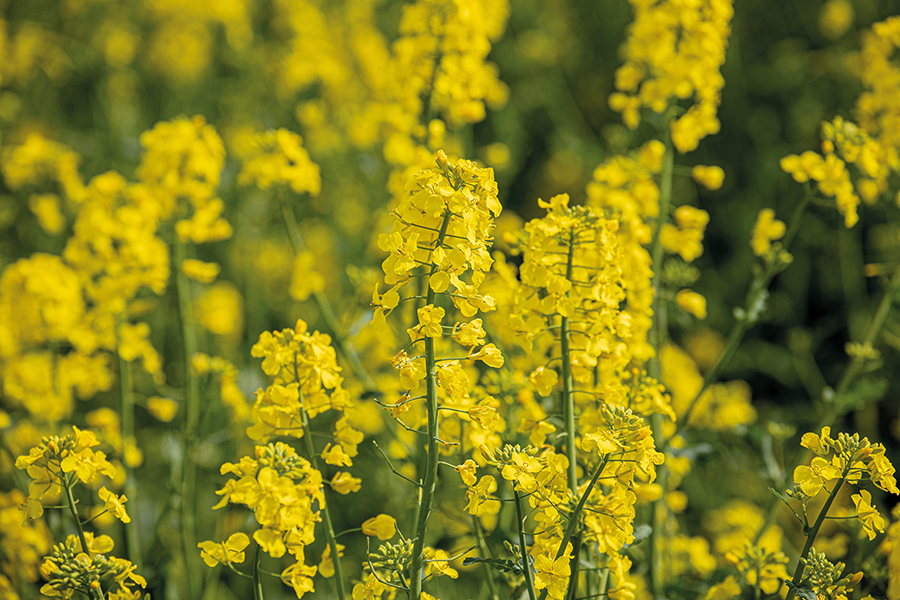OSR challenges in a changing climate
13th February 2024
At a technical webinar held by LS Plant Breeding Ltd (LSPB) at the end of December, managing director Chris Guest discussed the challenges for OSR in the UK in a changing climate.

Looking at OSR over the past 30 years, Mr Guest explained that you can see the evolution of the crop, in particular the struggles and decline of the crop area over more recent times – but he pointed out that the genetic gain or yield improvement is still clearly there in the trend line.
“We saw the first introduction of the F1 hybrid varieties towards the end of the 1990s, which had an impact. This was followed by a market area increase from the year 2000 up until the peak in 2012 of just under 750,000ha. Obviously, with the challenges of the neonicotinoid ban in 2014/15, we’ve seen a sharp decline, particularly in certain years, in the crop acreage.
“We are in a position where the UK has become a net importer of OSR, rather than a net exporter, which comes with domestic food security concerns,” Mr Guest said.
He went on to explain that there are difficulties in transferring the genetic yield potential from official trials onto a farm scale level, and while genetic gain is around 2% year-on-year, some environmental conditions, including climate change, as well as pest pressure and challenges with access to plant protection products, are mitigating this genetic gain.
He pointed out that we therefore need to think about looking at new crop management strategies. LSPB has been looking at later sowing as an option – questioning whether early sowing is a reason for limited yields.
“With a current on-farm average sowing date of early August, with some drilling even being undertaken in July, compared to an official trial average drill of 25th August – is this playing its part in the disparity that we’re seeing?” asked Mr Guest.
He pointed out that the launch of the new verticillium rating on the AHDB RL 2024/25 is a really important element for growers when comparing varieties.
Speaking about the challenges in the UK, and how yield potential is stagnating on farm compared to trials, Mr Guest said this early sowing drive to combat flea beetle combined with drought conditions is creating a challenge for the crop. He pointed out that TuYV resistance varieties which take up a large percentage of the market need less thermal development time, so those earlier sown crops are leading to many overgrown canopies – therefore delayed sowing into September could be part of a key crop management strategy moving forward. This, explained Mr Guest, is where there is a real opportunity for growers to use their own on-farm data from weather networks such as Sencrop to track their local historic thermal data, and utilise this to work out their latest sowing opportunity.
In conclusion, Mr Guest said this is just the start of a journey – LSPB wants to deliver technically sound, robust strategies for farmers to make the best use of genetics in oilseed rape, in order to get the best results on-farm. As such, the breeder is undertaking a number of trials this year to deliver further figures for wider discussion in summer 2024.
Read more arable articles here

